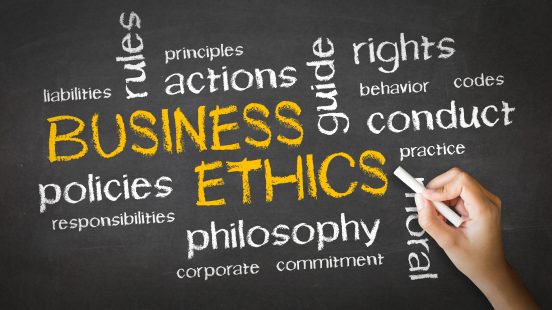Consumers when deciding to buy a particular product from a particular company look beyond just the price. They question the quality, whether it’s a necessity, and the production behind the product. Does the company have a good reputation? Does the company care about its customers? Does the company care about its workers?
First of all – a crude definition of ethics may be defined as moral principles that influences one’s decisions. The general consensus of society usually shapes ethics in deciding whether an action is either right or wrong. To ignore these guidelines and stray away from that, such as fraud or stealing, can result in a backlash from both the local and global community. This is especially true for businesses. In a study conducted by Elizabeth H. Creyer, an associate professor of marketing and transportation at the University of Arkansas, she has found conclusive evidence that the ethicality of a firm’s behaviour is an important consideration during the purchase decision. (Creyer) Failing to abide an ethical policy can result in a negative impact to sales and reputation.
Profits aside, proper ethics and following moral behaviour is simply a duty in which all human beings in a functional society should abide by. Instating socially responsible and ethical policies should be the forefront of business operation, not cast aside and applied when convenient. Large short-term profits gained by unethical practices may seem appealing to businesses, but the consequences of such are detrimental and everlasting.
Perhaps a recent example of which can be seen through the Volkswagen emissions scandal which occurred late last year. To summarize, Volkswagen deliberately developed a system to cheat laboratory testing measuring emissions. It cheated tests by reporting lower emissions rates, but in reality, the engines emitted nitrogen oxide pollutants almost 40 times above what is allowed in the US. (BBC) By intentionally lying about their emissions and developing a malicious system directly intended to bypass mandated checks, their stock prices declined 29% in just two days. However, most importantly, they shambled their reputation and broken the trust of their customers.

Image retrieved from toonpool.com, public domain.
It is incredible how a reputation built up over decades becomes shattered overnight. For years, Volkswagen has boasted about that their “ responsible approach will help to make us the world’s leading automaker by 2018 – both economically and ecologically”. However, because of this incident, customers are not associating Volkswagen with being “responsible, ecological, leading” but rather “cheating, fraudulent, unethical”. It truly emphasizes the importance of social responsibility in business.
Word Count: 413





